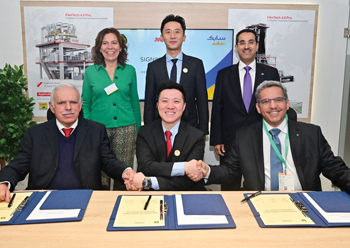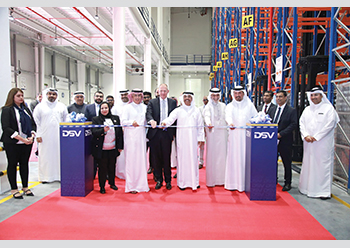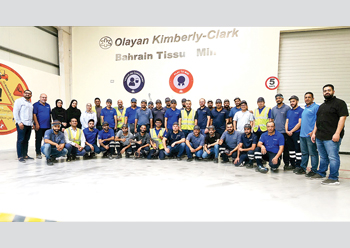
 Kenan Nouwailati
Kenan Nouwailati
Going global can mitigate some of the challenges industrial small and medium enterprises (SMEs) face in Saudi Arabia, notes a new publication released by KPMG Professional Services.
Titled “Growing new industrial supply chains”, the new study describes the journey that SMEs could undertake to set up industrial supply chains, the ecosystem of support that industrial SMEs navigate, and the challenges they face in Saudi Arabia.
The paper outlines global examples and benchmarks to identify disparate strategies adopted by other nations and distil them into concise recommendations, which can be applied in the Kingdom to aid industrial SMEs in setting up their supply chains.
Industrial SMEs in the Kingdom operate in a rich ecosystem of ministries, agencies, and programs that support growing enterprises. The efforts of the ecosystem are underpinned by the Saudi Vision 2030 and the goals of diversifying the economy and increasing the industrial sector’s contribution to GDP.
“Throughout their journey of establishing local industrial supply chains, SMEs may face various challenges, which can be exacerbated by global occurrences and shocks, such as the global Covid-19 pandemic,” said Kenan Nouwailati, Head of Procurement, Supply Chain and Local Content Advisory at KPMG in Saudi Arabia.
“The broad challenges that may plague any industrial SME looking to establish itself in the Kingdom’s local industrial complex are fluctuations in demand and supply, attracting investments, attracting a skilled workforce with the right experience and regulatory challenges,” he added.
In Saudi Arabia, Monsha’at, the General Authority for SMEs, announced earlier this year that the number of SMEs has grown by 15 per cent, to 752,600 SMEs, in the first quarter of 2022.
The Kingdom is seeing growth as the skillset of local entrepreneurs increase, despite the hits taken by the global market in recent years.
“Going global can mitigate some of the challenges industrial SMEs face when confined to the local sphere, such as fluctuations in supply and demand. Local SMEs will have to transform into resilient and technologically-savvy operations to compete on the global stage,” noted Nouwailati.
Some steps they need to take include market research, digitizing fast, leveraging technology and speed to market.
According to the report, a crucial part of government support for industrial SMEs is the availability of tools that can aid them at every stage of their lifecycle.
Financial support coupled with advisory services backed by the recently announced National Industrial Strategy offers a tremendous opportunity for industrial SMEs.
Moreover, the ease of doing business in the Kingdom has improved significantly over the last few years, but difficulties remain in navigating the regulatory framework.








